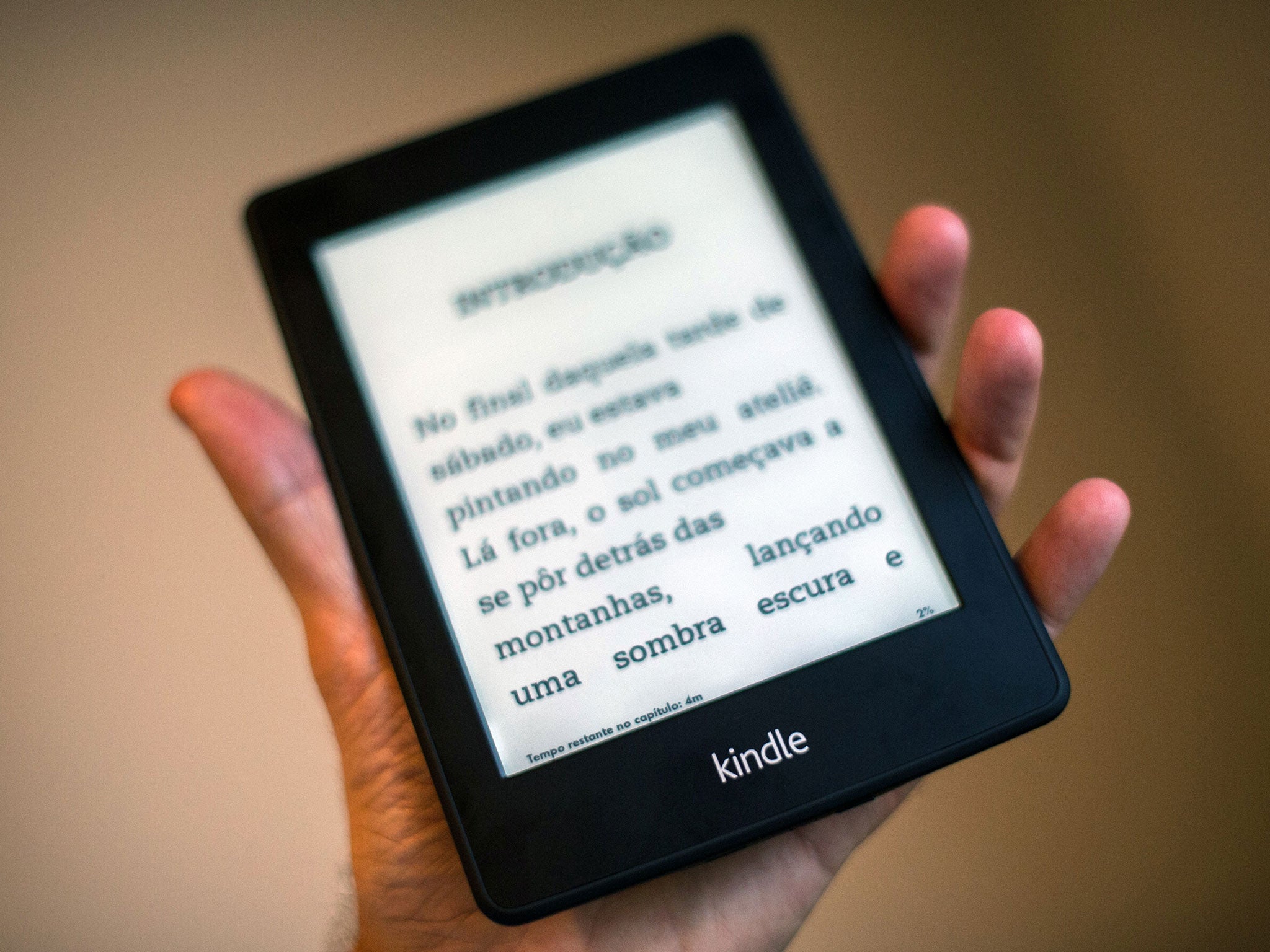Kindle e-readers make it 'significantly harder' to absorb the plot of a book, scientists claim
Participants in the a study were asked to recall the plot of a mystery story

Your support helps us to tell the story
From reproductive rights to climate change to Big Tech, The Independent is on the ground when the story is developing. Whether it's investigating the financials of Elon Musk's pro-Trump PAC or producing our latest documentary, 'The A Word', which shines a light on the American women fighting for reproductive rights, we know how important it is to parse out the facts from the messaging.
At such a critical moment in US history, we need reporters on the ground. Your donation allows us to keep sending journalists to speak to both sides of the story.
The Independent is trusted by Americans across the entire political spectrum. And unlike many other quality news outlets, we choose not to lock Americans out of our reporting and analysis with paywalls. We believe quality journalism should be available to everyone, paid for by those who can afford it.
Your support makes all the difference.Bookworms who believe nothing can compare to getting stuck into a paperback novel now have evidence to back their hunch, as researchers have claimed that Kindle devices make it “significantly harder” for a reader to absorb plotlines.
A Europe-wide study, assessing how the move from paper books to digital technology impacts a reader’s experience, has suggested that the difference may be down to the weight and feel of a Kindle when in comparison to a paperback.
Researchers made their findings by giving 50 readers the same 28-page short story by American mystery writer Elizabeth George. Half were given a Kindle to read from, and the rest a paperback book.
The participants were then asked to recall aspects of the story including objects, characters and settings, the Guardian reported. Only two participants were experienced Kindle users.
The study found that while factors including empathy with the characters, immersion into the story, and a reader’s understanding of the narrative were relatively similar, Kindle readers performed “significantly worse” when asked to relay the story’s events in the correct order.
“When you read on paper you can sense with your fingers a pile of pages on the left growing, and shrinking on the right,” Anne Mangen of Norway's Stavanger University, a lead researcher on the study, told the newspaper.
She believes “sensory offload” of turning pages may be linked in the reader’s mind to the progress of the text, and in turn the story itself.
In the study presented at conference in Italy, Mangen also cited a paper published last year which showed Norwegian teenagers had a better comprehension of a text read off paper rather than on a digital device.
She added she now hopes to replicate the Elizabeth George study using regular Kindle readers, but said she was sceptical that the "digital natives" of today would perform better.
“I don't think we should assume it is all to do with habits, and base decisions to replace print textbooks with iPads, for instance, on such assumptions. Studies with students, for instance, have shown that they often prefer to read on paper,” she said.
Join our commenting forum
Join thought-provoking conversations, follow other Independent readers and see their replies
Comments